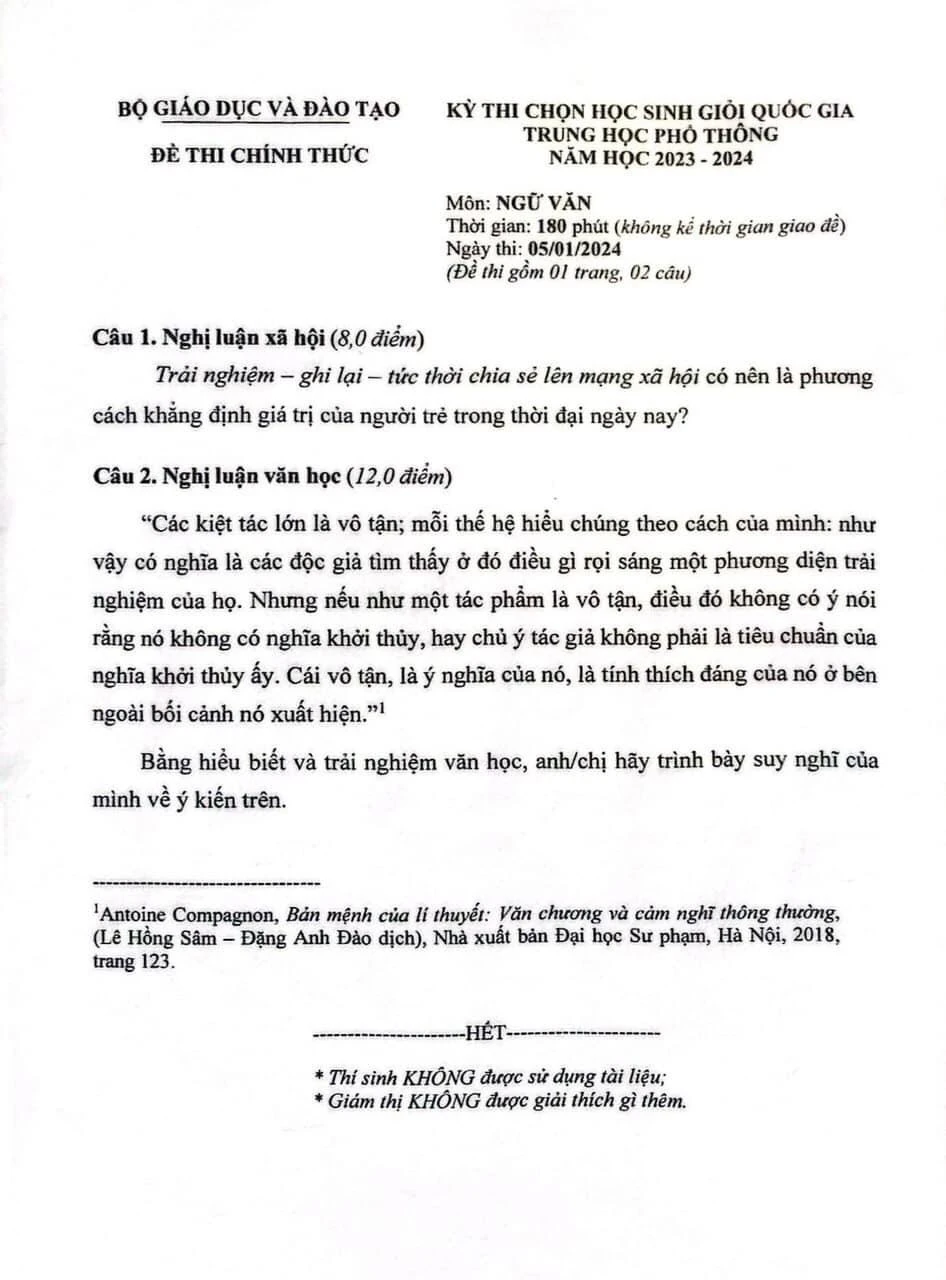
National excellent student exam in literature 2024
Accordingly, the exam for gifted students in literature has 2 questions and the score scale is 20. The content is as follows:
Question 1. Social commentary (8.0 points)
Should experiencing - recording - instantly sharing on social networks be the way to affirm the value of young people in today's era?
Question 2. Literary essay (12.0 points)
"Great masterpieces are timeless; each generation interprets them in its own way: that is to say, readers find in them something that illuminates an aspect of their experience. But if a work is timeless, this does not mean that it has no original meaning, or that the author's intention is not the criterion of that original meaning. What is timeless is its meaning, its relevance outside the context in which it appears."
With your knowledge and literary experience, please present your thoughts on the above opinion.
The exam is heavy on literature, lacking the breath of literary life.
Regarding the above content of the gifted student exam, teacher Do Duc Anh, Bui Thi Xuan High School (District 1, Ho Chi Minh City), assessed that the 2 requirements of the 2 questions in the gifted student exam had too big a difference.
Teacher Duc Anh commented: "The social argument question can be said to be too light, intended for a test for 10th and 11th graders, not worthy of being a national excellent student exam. As for the literary argument question, the words are abstract, seemingly heavy, great, and endless."
According to Mr. Duc Anh, this literature exam focuses heavily on literature and lacks the breath of literary life.
Good test, high differentiation
Meanwhile, Master Phan The Hoai, who teaches literature in Binh Tan District (HCMC), commented: "The social argumentation question raises a very practical issue, close to today's life, including youth: experience - record - immediately share on social networks. This is an open question, candidates are free to express their own opinions as long as the arguments are convincing."
In the literary essay question, Master Hoai commented that the question was a bit tricky and academic, candidates needed to read the question carefully to decode the content of the question about the role of readers in receiving literature. Master Hoai called this a good, difficult, worthy, and highly classified exam question.
Master Nguyen Phuoc Bao Khoi, lecturer of the Faculty of Literature, Ho Chi Minh City University of Education, said that the test was good, highly differentiated, and met the requirements for selecting excellent national students. It can be seen that the connection, although not clear, between the two questions is based on personal experience and looking back at this issue when placed in relation to the technological society, in the circle of interaction and connection with the author and the text.
According to Master Khoi, implementing the exam questions following the trend of linking with the topic axis is a viewpoint that has been initiated since the 2021-2022 school year, completely consistent with the innovation of the literature program and textbooks after 2018, even though this is the exam questions serving the last year of implementing the 2006 literature program. "From there, we further affirm the very good updating ability of the question maker to the actual process of life and the current situation of teaching literature," Master Khoi emphasized.
According to Master Khoi, in the literary argument, the first good thing about the question maker is that he has chosen a valuable assessment from a very good work but difficult to read/understand. The second good thing about the test is that with this assessment, the high differentiation is clearly shown when asking for ideas, developing ideas and summarizing ideas of good students. Choosing the focus is to identify the masterpiece from the process of creating meaning for the text on both the author and the reader's side, on the relationship between the meaning of the text and the reference fields, with the historical and social context, the test is no longer an easy-to-detect literary theory problem but requires the ability to process, analyze, explain, connect, and expand the periphery of the information presented in the question. This process has avoided the rote learning when only grasping literary theory knowledge or learning to be fancy when associating with modern approaches that are too much for high school students. Going into the essence of literature, arousing a broad view of the object and understanding the role of the subject, the exam questions themselves are a fertile land but are very selective in choosing the hands to explore and uncover the many hidden values within.
In the social argumentation question, the way of posing the problem has overcome the limitations of the exam for many years when the argumentation requirement gradually moved away from issues that were still meaningful but not suitable for the age or were starting to become cliché. The process of "affirming the value" of each individual is linked to the orientation of "experience - record - instantly share on social networks" posing choices aimed directly at the need to express, the desire to assert the ego strongly, very confidently of young people.
According to Master Khoi, this is a hot exam with the breath of reality, close to the mind, so it creates an opportunity for students to express their typical ego of early youth, to let their own views speak up to affirm their own directions and individual paths with strong identities. The two-sided nature of social networks is also something students need to consider when conducting the process of re-contemplation and choosing how to express their personality. More deeply, has the person who wrote the exam created overlapping choices such as "hurried - slow, ostentatious on the surface - settling in the depth, instantaneous value - sustainable value, dependent on digital society - independent of technology" to create a stimulating performance (and challenges) for students? These are also a way to help the exam affirm its value.
Source link








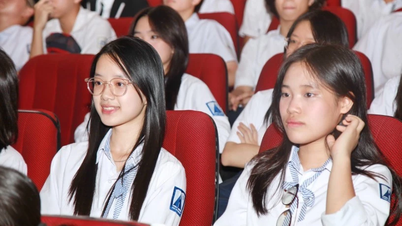

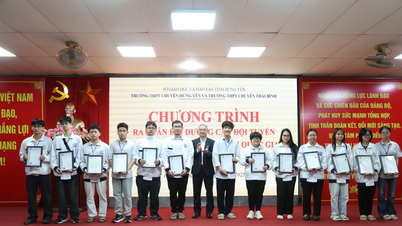
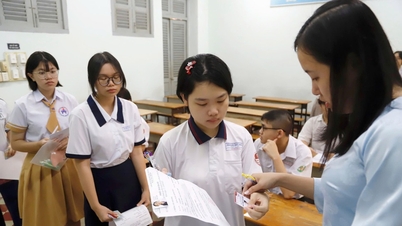

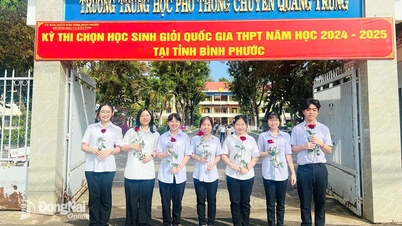

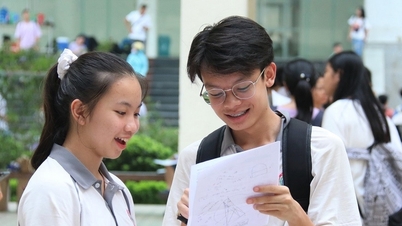










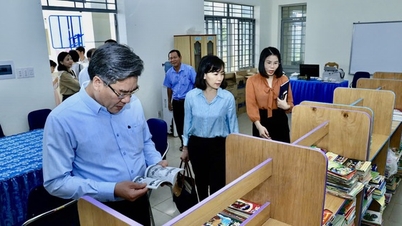





















![[Video] Hue Monuments reopen to welcome visitors](https://vphoto.vietnam.vn/thumb/402x226/vietnam/resource/IMAGE/2025/11/05/1762301089171_dung01-05-43-09still013-jpg.webp)


























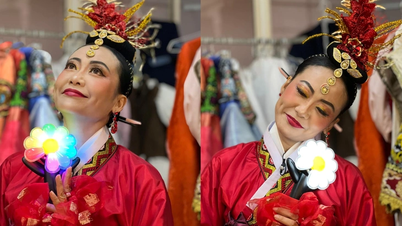
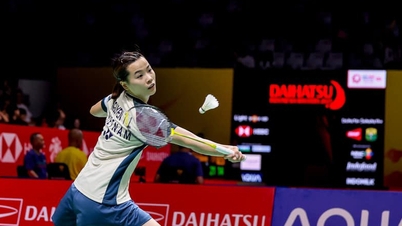








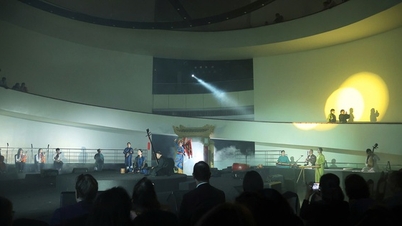
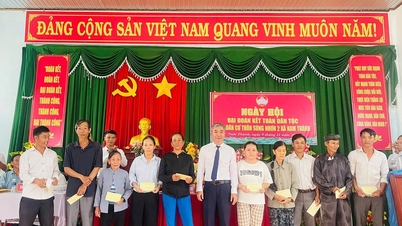

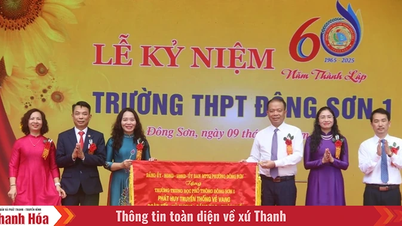



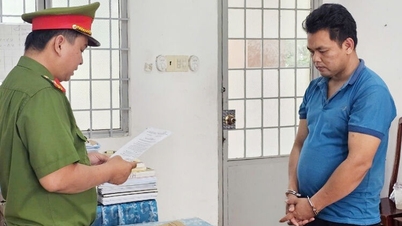

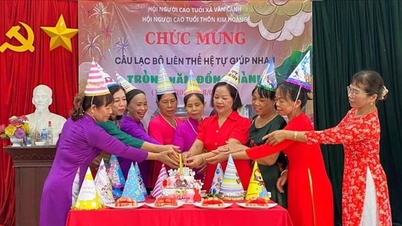



![Dong Nai OCOP transition: [Part 2] Opening new distribution channel](https://vphoto.vietnam.vn/thumb/402x226/vietnam/resource/IMAGE/2025/11/09/1762655780766_4613-anh-1_20240803100041-nongnghiep-154608.jpeg)













Comment (0)